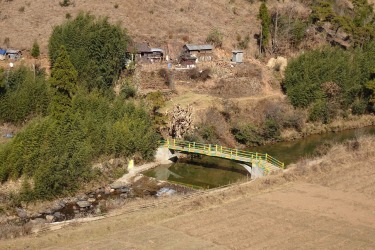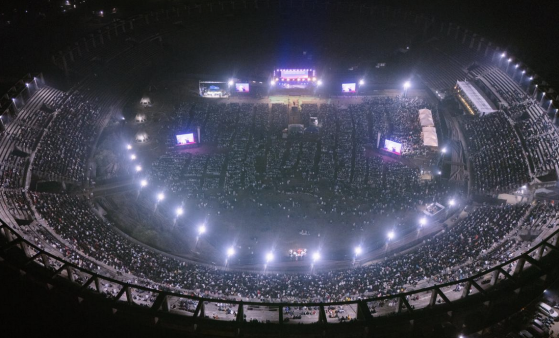
A hardline Hindu group in Assam has threatened major road blockades in neighbouring state Meghalaya if a ban on worshipping an alleged 'Shivalinga' (a symbolic representation of the god Shiva) in a geologically significant cave is not lifted, raising the stakes in a simmering dispute over religious access to the popular tourist site.
Addressing a press conference, the president of a little-known Hindu right-wing group Kutumba Surakshya Parishad (KSP), Satya Ranjan Borah, declared that the Meghalaya government will face "sincere protest" in Assam, potentially including "blockage of the roads to Meghalaya via Jorabat (Guwahati); Paikan (Goalpara) and all other roads." He stated that this would be a reaction to the "anti-Hindu actions" of Meghalayan authorities. Borah ominously warned that "if we will have to initiate the action; they will not get the time to even react."
The controversy centres around the Mawjymbuin cave, located about 60 kilometres southwest of Meghalaya's capital Shillong. The 209-metre-high natural wonder, formed of calcareous sandstones, is renowned for its unique geological features, including a stone formation resembling the Hindu sacred symbol of the Shivalinga.
On 1 August, the local village council, the Mawsynram Dorbar Shnong, imposed a ban on all worship and religious activities within the cave. The council's decision was reportedly prompted by an announcement from another obscure Hindu group that it would organise a large-scale pilgrimage, similar to the Kanwar Yatra, to the cave on 10-11 August. Meghalaya's Tourism Minister Paul Lyngdoh justified the ban, stating that it was a "logical and reasonable" move to protect the cave's status as a major tourist attraction. He argued that allowing it to be used as a place of worship for one religion could harm tourism in the area.
The ruling National People's Party, a key regional ally of the BJP, also backed the village council's decision, with the party's spokesperson H.M. Shangpliang asserting that "the cave cannot be converted into a place of worship" as "people have invested heavily in tourism in the area."
However, the ban has provoked outrage from Hindu groups, particularly KSP, who have accused "Christian organisations" of "forcing" the village council to implement it as part of a "conspiracy" to "defame and destroy the Hindu faith and culture" in Meghalaya. The Hindu Yatra Pilgrimage (HYP), a registered society, has filed a writ petition in the Meghalaya High Court challenging the decision.
Notably, the HYP had initially obtained permission from the district administration in June to organise their annual pilgrimage to the cave, but this was contingent on securing a no-objection certificate from the village council, which they were unable to obtain.
The Mawjymbuin cave is renowned as a major tourist attraction, drawing visitors from around the world who come to marvel at its unique geological features. Meghalaya's tourism minister argued that allowing the cave to be used for religious worship by one community could jeopardise its status as a secular tourist site.
However, Hindu groups have countered that temples and other places of worship are often major draws for religious tourism in India and have accused the authorities of discriminating against the Hindu faith. KSP's Borah has cited examples of other prominent Hindu pilgrimage sites like the Kamakhya Temple in Assam and the Mahakaleshwar Temple in Ujjain as places that are also major tourist attractions.
With tensions escalating, the situation threatens to spill over into wider unrest. KSP's Borah has ominously warned that if the Hindu community faces "further torture" in neighbouring Bangladesh, they "would not be responsible for the possible damage to be done" to families belonging to the "Jihadi umbrella" there. This apparent attempt to invoke a cross-border sectarian dimension to the dispute raises fears of the controversy turning into a larger communal flashpoint.
As tensions continue to escalate, the Meghalaya High Court has now intervened, issuing a directive for key government officials to attend a critical hearing on the matter. In his order, Justice HS Thangkhiew highlighted the sensitivity and urgency of the case, instructing the Deputy Commissioner of East Khasi Hills District and the Superintendent of Police, along with other respondents, to be present for the hearing scheduled for 2pm on 8 August 2024.




